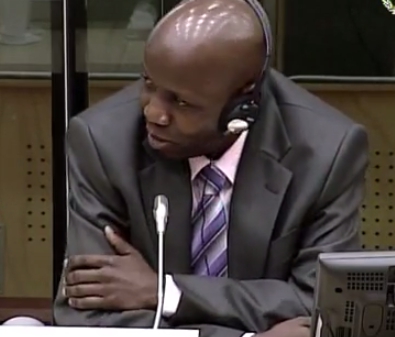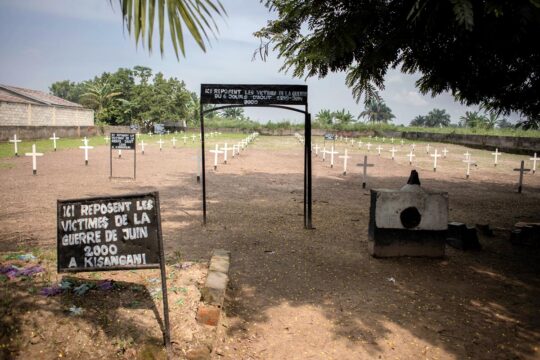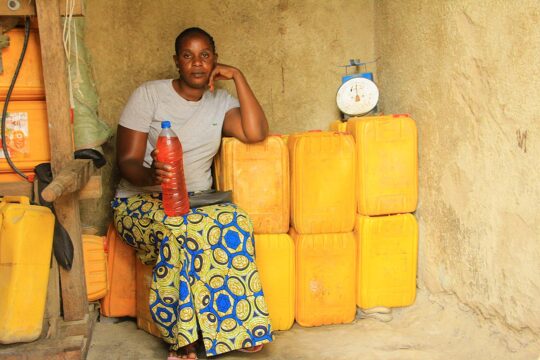Pierre Mbodina Iribi, an imprisoned ex-member of the Congolese intelligence services, is a former witness before the International Criminal Court (ICC). He has been in jail in Kinshasa for more than ten years. In spring 2011, he went to The Hague along with two politicians from Ituri, eastern Democratic Republic of Congo (DRC) to testify for the defence of Germain Katanga. “I regret testifying before the ICC,” he says now, speaking from Ndolo military prison in Kinshasa. “I don’t want my testimony to be used any more against anyone.”
Like the two other witnesses, Floribert Njabu and Sharif Manda, Pierre Mbodina Iribi openly accused the Kabila régime in his testimony of planning the February 24, 2003 attack in Bogoro, for which Germain Katanga was sentenced to 12 years in jail. After testifying, the three witnesses tried unsuccessfully to get political asylum in the Netherlands. After three long years of legal procedures, they were deported to Kinshasa at the beginning of July 2014, nearly a year ago. Since then “I think about it every day,” sighs Pierre Mbodina Iribi. “Yes, really every day. If I were asked again, I would refuse, I would not testify.”
One of the reasons for his bitterness is that before they went to The Hague, the ICC judges ordered the Registry to monitor the detention conditions of the three witnesses and how procedures against them in the DRC were evolving. But “with regard to the Court, it seems there is a sort of unspoken gap between words and actions,” says Pierre Mbodina Iribi. “The ICC has given priority to its relations with the DRC, to the detriment of us little people, the small fry.” When questioned about this, the Registry says laconically that it “fulfilled its obligations”. Ghislain Mabanga, lawyer for the three witnesses, disputes this. “Clearly none of the promises made by the Court have so far been respected,” he says. In Kinshasa, an ICC official visits them regularly but “he has no decision making power”, says the lawyer.
Legal proceedings against the detainees have apparently not advanced at all, apart from an order committing them to trial, communicated to them on October 1, 2014. “They talk about insurrection, recruitment of child soldiers, but I have never been questioned nor told the official charges against me,” says Pierre Mbodina Iribi. “I want to be tried, but our lawyers wanted to see the case file and found nothing, because there isn’t one.” As Pierre Mbodina Iribi is speaking, shouting can be heard in the background. “It’s the prisoners,” he explains. “A prisoner has fallen down, but there is no warning system, so to get someone to come you have to shout and make a lot of noise.” The three prisoners have complained about their prison conditions, but nothing has changed. “Here people are put into categories,” Pierre Mbodina Iribi continues. “And we are singled out, filed as anti-Kabila activists. For those who are against the regime, there are restrictions. They harass our visitors, for example. Others are labelled as pro-regime, and they get privileges.”
When they were returned to the DRC, Sharif Manda and Pierre Mbodina Iribi got drugs for their diabetes. But the medicines provided by the ICC ran out in two weeks. As for Floribert Njabu, “he needs surgery for his eyes”, says lawyer Mabanga, who plans to inform the ICC judges.





